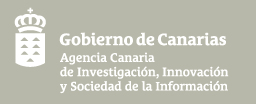The VERDINO project is being developed by the Robotics Group of the University of La Laguna (GRULL), in Tenerife (Spain). The project has been developed intending to navigate in ITER (Technological Institute for the Renewable Energies) facilities, located in Tenerife (Canary Islands).
The project consists of an electric vehicle, electronically and mechanically adapted for computer control, aimed for people transportation within a bioclimatic housing environment. This vehicle features the following systems:
- Odometric system based on optical encoders.
- 3x planar laser range finders.
- Frontal detection system based on Kinect2.
- Inertial measurement unit (IMU).
- Stereo Pan-Tilt-Zoom camera rig (visible spectrum).
- Stereo Pan-Tilt thermal vision system (far infrared spectrum).
- Centimetric GPS system.
- ZigBee based distributed wireless communication network.
Based on this hardware infrastructure, the following features and capabilities have been developed:
- Modular control architecture, providing a testing and validation platform for perception and control algorithms.
- Effective guidance system based on predictive control techniques.
- Vision algorithms for non-structured road edges detection, using an optimization method based on the ant colonies (in visible spectrum).
- Stereoscopic vision algorithms for object detection (in particular pedestrians and animals) based on V-disparity techniques.
- Range finder based obstacle detection module.
- Visible-Infrared vision fusion module.
Besides all the work that is already done, there are many open development lines that are of interest for the research group:
- Fleet management based on intelligent agents.
- Ambient Intelligence on the road for data acquisition and vehicle interaction.
- Human interface improvement for greater usability and accessibility (distributed points of information, hands-free systems, disabled aids…).
- Power generation systems.
- Alternative energy storage systems.
- Power management systems.
- Navigation algorithms in pedestrian populated environments.
- Active suspension for vision system stabilization.
Studies and development have started on some fields, like fleet management, ambient intelligence and vision system stabilization, while others remain undeveloped. In any case, collaboration is open in the aforementioned fields, or any other of interest.
Besides the acquired expertise in this and previous projects, this research group can offer the benefits of a highly available urban proving ground in a geographic location with more than 300 sunny days per year, reducing the weather dependency. Tenerife is a very popular tourist destination, therefore a wide hotel room offer exists for partners accommodation.
Verdino uses WillowGarage's ROS Robot Operating System.

